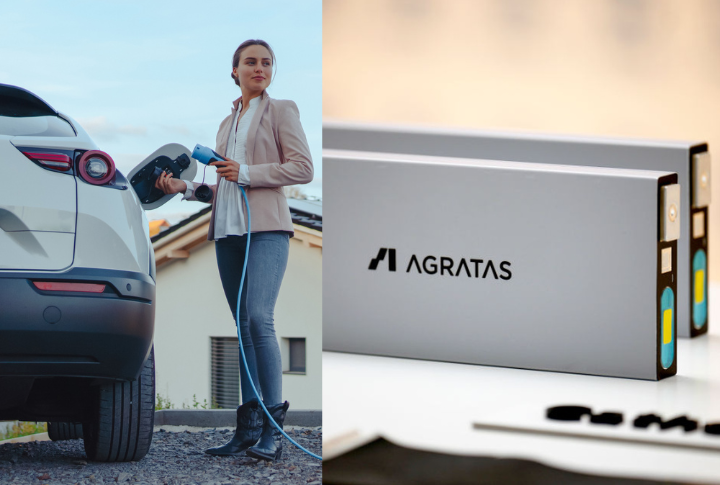
Electric Car Batteries Set to Dominate by 2030

Halfpoint/Getty
The automotive industry is envisioned to undergo significant changes soon due to the anticipated arrival of groundbreaking advancements in electric vehicle (EV) batteries. These upcoming upgrades are projected to reshape the market dynamics, potentially making gas-powered vehicles more expensive than their electric counterparts by 2030. Additionally, with the promise of rapid charging capabilities comparable to traditional gas station refills and the emergence of super long-range EVs, the era of “range anxiety” may soon become a thing of the past.
BMW’s 2025 Electric Vehicle Battery Breakthrough

One of the most significant breakthroughs comes from BMW’s announcement of a new platform for EVs, slated for release in 2025. This platform, known as “Neue Klasse,” promises to introduce a new kind of power cell flaunting over 20% higher energy density than previous iterations. BMW aims to enhance charging speed and range by up to 30%
Advancements in Battery Technology by SES AI

SES AI, a Massachusetts-based battery component manufacturer, is on the cusp of delivering another technological leap slated for 2026. By harnessing solid lithium metal, SES AI collaborates with major automakers such as GM, Hyundai, and Honda to propel efficiency to new heights. This innovation promises enhanced density and allows seamless integration into existing assembly lines.
Electric Vehicle Battery Fundamentals

Understanding the fundamentals sheds light on the significance of upcoming innovation. Zero-emission cells typically comprise layers including an anode, cathode, and electrolyte, with lithium-ion cells facilitating the flow of electricity. The introduction of Li metal anodes holds the potential to revolutionize performance.
StoreDot’s Groundbreaking Advances in Rapid Charging Technology

StoreDot, an Israeli battery startup, is spearheading efforts to revolutionize energizing speeds with its silicon-based anode technology. Collaborating with major automakers like Polestar, StoreDot aims to significantly reduce energizing times, enabling electric vehicles (EVs) to gain 100 miles of range in just five minutes by 2028.
The Future of Battery Technology

QuantumScape is a frontrunner in pursuing solid-state power source technology, offering unparalleled performance and durability. Despite facing challenges, QuantumScape aims to deliver its first vehicle testing by next year, potentially revolutionizing the automotive industry in the years to come. While solid-state cells represent the pinnacle of battery innovation, widespread adoption hinges on overcoming technical hurdles and rigorous testing protocols.
Overlooked Technological Leaps

The anticipation surrounding impending advancements has often been overshadowed by flashy attempts to replace the existing lithium-ion. Despite numerous promises of ” breakthroughs,” previous endeavors have failed to materialize, leaving investors and consumers disappointed. However, the focus on enhancing tried-and-true Li metal presents a significant advantage.
Leveraging Tried-and-True Technology

The forthcoming developments predominantly focus on enhancing the tried-and-true lithium batteries, providing a significant advantage in manufacturing feasibility and supply chain integration. This approach leverages existing facilities and fits into established supply chains, minimizing disruptions and maximizing scalability.
The Heart of EV Batteries

EV batteries typically comprise layers including an anode, cathode, and electrolyte, with li-ion cells facilitating the flow of electricity. The introduction of lithium metal anodes holds the potential to revolutionize battery performance, significantly increasing energy density.
Market Implications

Introducing these groundbreaking technologies is poised to have profound implications for the market. From reshaping consumer preferences to influencing investment strategies, this progress signals a shift towards a more sustainable and technologically advanced automotive industry.
Environmental Impact

By switching to advanced EV batteries, we can cut down on carbon emissions and reduce our reliance on fossil fuels. By accelerating the adoption of electric vehicles, this progress contributes to a more sustainable future for transportation.
Advancements in Solid-State Battery Technology

While lithium-ion has dominated the market, solid-state energy storage systems represent the next frontier. These units offer higher density, faster charging times, and enhanced safety compared to traditional Li-ion counterparts. Companies like Solid Power and QuantumScape are at the forefront of this development, promising to revolutionize the industry in the coming years.
Infrastructure Challenges and Opportunities

The widespread adoption of electric vehicles relies heavily on developing robust, energizing infrastructure. While improvement enables faster powering times and longer ranges, addressing infrastructure challenges remains crucial for seamless integration into everyday life. Innovative solutions such as wireless powering technology and expanded powering networks are essential.
Integration of Renewable Energy Sources

The convergence of electric vehicles and renewable sources presents new opportunities for sustainable transportation. By integrating EV charging with solar and wind power, carbon emissions and dependence on fossil fuels can be further reduced.
Battery Recycling and Sustainability

As the demand continues to rise, the significance of energy storage unit recycling and sustainability becomes increasingly apparent. Recycling lithium-ion storage units conserves valuable resources and reduces environmental impact by preventing hazardous materials from entering landfills. Developing efficient recycling processes and establishing closed-loop supply chains are essential for ensuring long-term sustainability.
Regulatory Landscape and Policy Initiatives

Advancement and adoption are influenced by regulatory frameworks and policy initiatives at local, national, and international levels. The government is responsible for promoting the takeup-and-coming of electric vehicles through subsidies and emissions regulations. Understanding the evolving regulatory landscape and policy priorities is essential for industry stakeholders to navigate challenges and seize opportunities for growth and innovation.


